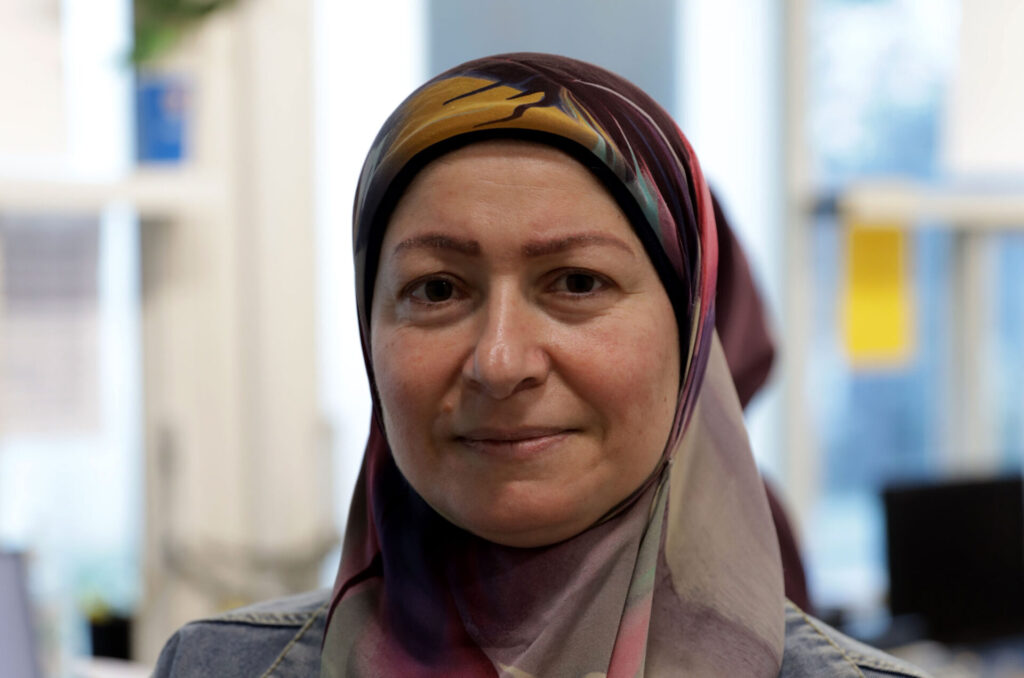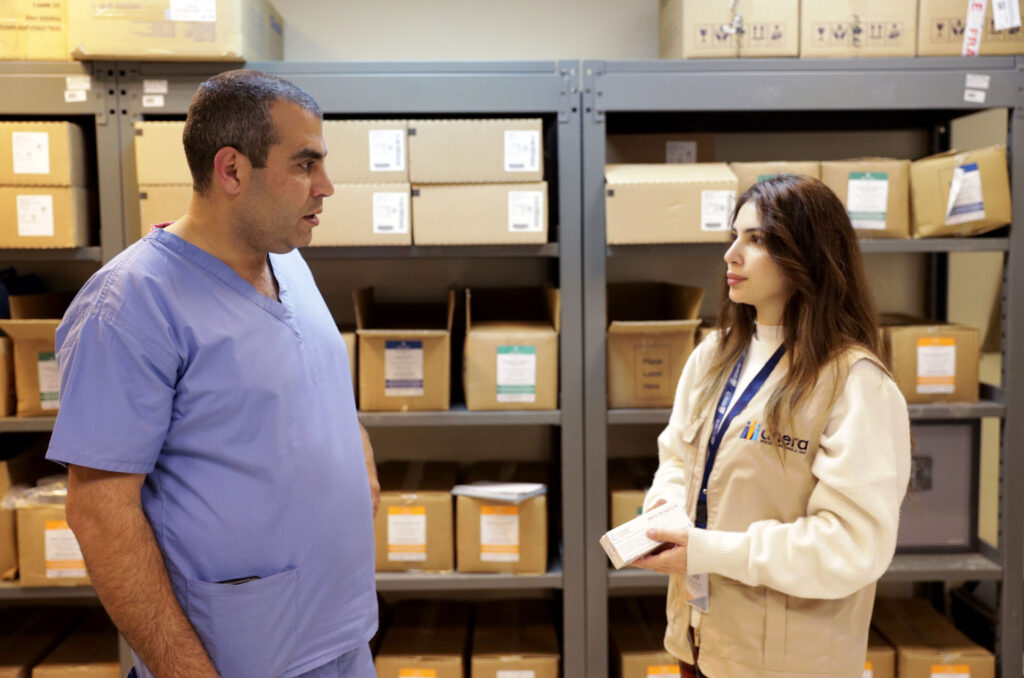Dec, 2017
Shihab Samout is a father of five living in the neighborhood of Bani Suhaila in Khan Younis, Gaza.
In the 17 years his family has lived there, sanitation has been severely lacking, with an estimated 80 percent of the community unable to access a proper sewage system. For Shihab, health comes first—particularly the health of his family. “My heart ached seeing children roll up their pants just to walk in the streets. It’s unhealthy for them.”
Fed up with the bad smell that permeated the neighborhood, Shihab and his neighbors took it upon themselves to find a solution. They installed barrels to collect leaking waste so they could lessen the overflow, particularly in the winter. When the barrels were full, they would call in trucks for disposal, but at almost $300 per call, it was unaffordable for many. “We had to squeeze our budgets to save money just for waste disposal,” says Shihab.
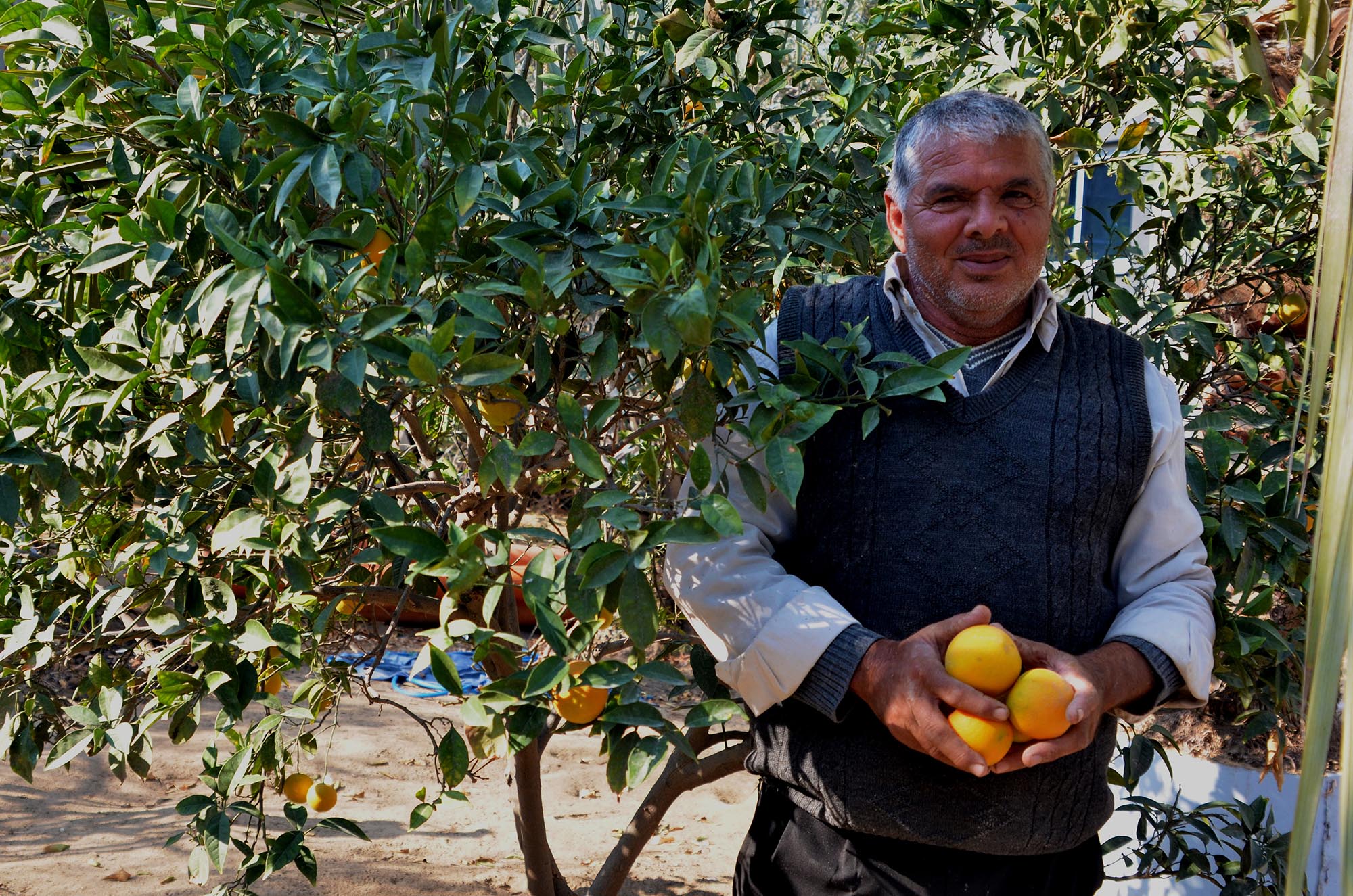



You can usually find me right here under my orange tree.
As a farmer, Shihab inherited land from his father. “I am a nature person,” he says. “I spend hours tending to my oranges and grapevines and I never get tired. You can usually find me right here under my orange tree.”
Shihab says there are many challenges in Gaza, but the problems with sanitation rank high among them. “I yearn for cleanliness. I would even pick up a fallen leaf and throw it away in a trash bin.”
A joint project between Anera and IRUSA has installed a new sewage system in Shihab’s neighborhood, and now the suffering has ended. “The smell is gone and so is all the worry we had in just watching our children cross the street,” explains Shihab.
The Rosary School Gets a Sewage System
Southern Gaza suffers the most from lack of proper sewage systems. The Rosary School was no exception. One of its buildings wasn’t connected to a sewage facility, which meant that preschoolers in its first-floor classrooms had difficulty reaching bathrooms, especially during winters.
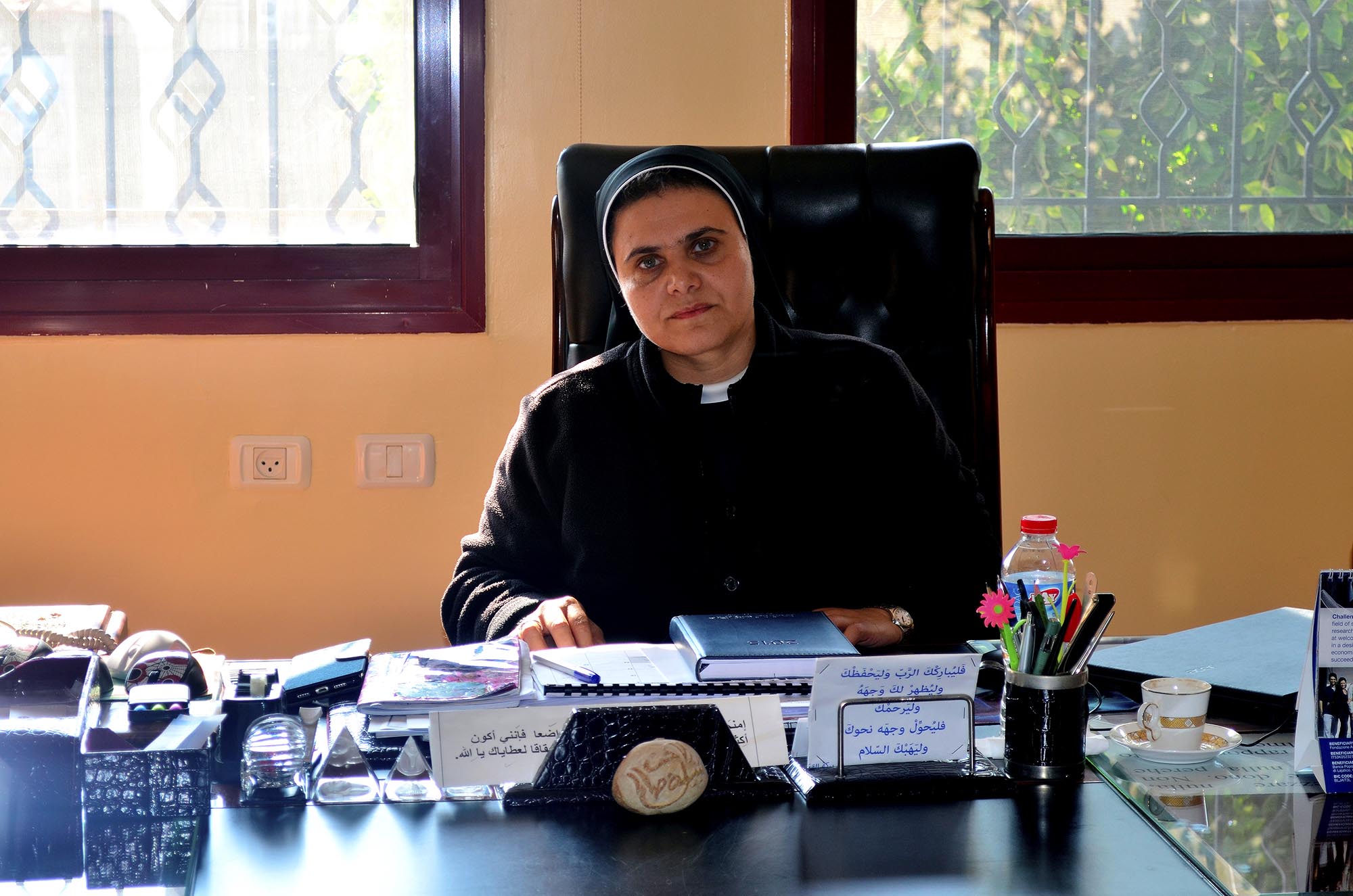

The school hosts 980 students, 80 teachers and 11 workers, according to the principal, Sister Nabila. “When the school first opened in the early 1990s, we had only 20 students,” she explains. “But over the years the school has grown in its capacity.” As the school expanded by adding buildings, the need for additional sewage facilities increased. To respond to this problem, the school installed a septic tank which they emptied twice per year. “It was terrible when the tank overflowed and we needed to call the manufacturer to come and fix it.”
Under the Anera partnership with IRUSA, the Rosary School now has a new sanitation system connected directly to the building.
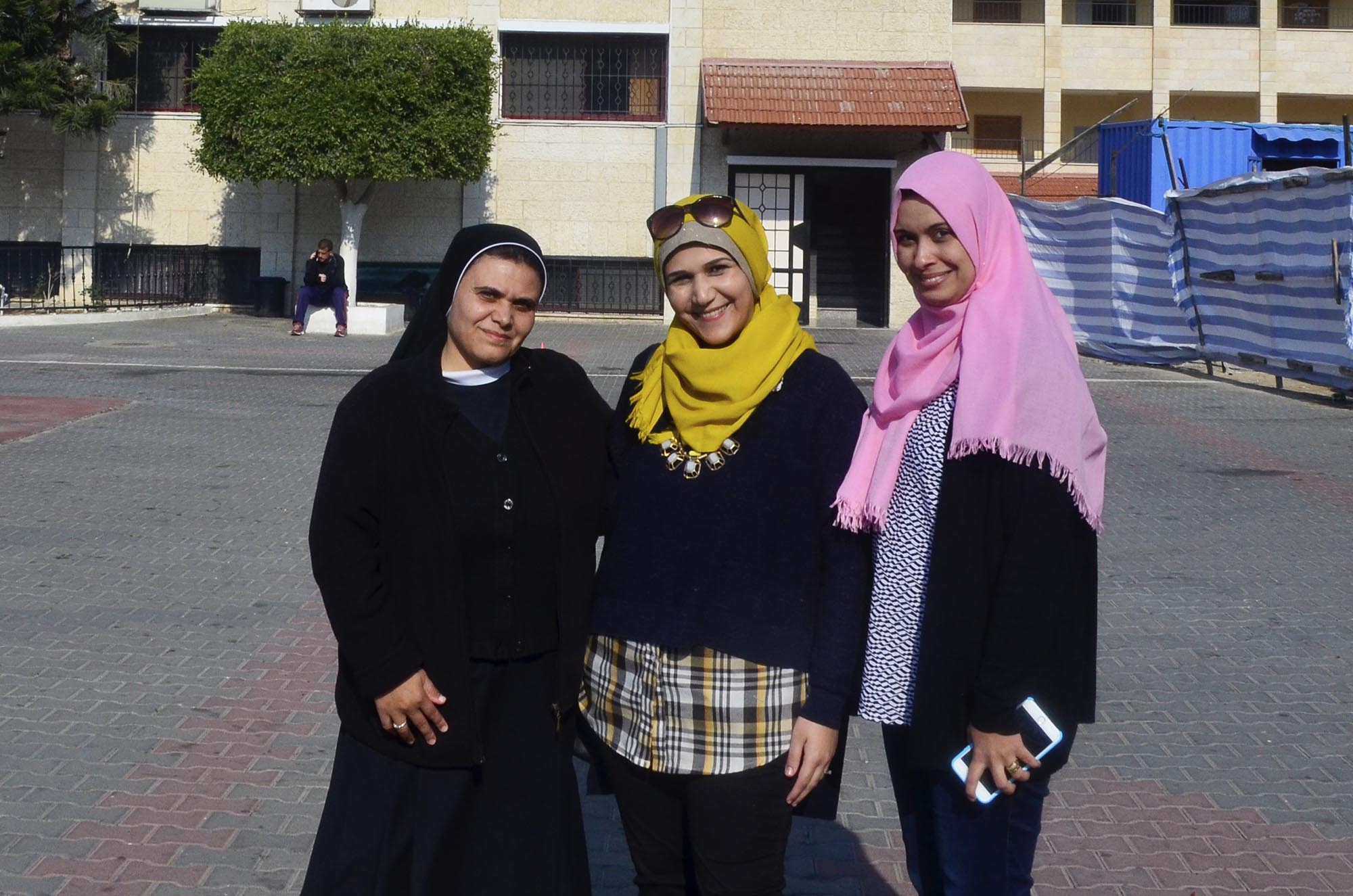

Health Sessions Bring Local Women Together
The neighborhoods surrounding the Rosary School have benefited from the Anera WASH project as well. Om Talaat is a local mother who received health awareness sessions and hygiene kits. “It’s difficult for women to leave the house and attend sessions somewhere else,” she says.
As a symbol of gratitude, she offers her living room as a space for women to come together and attend public health sessions on personal and household hygiene.
Her daughter Amal visits frequently and was thrilled to attend a session, too. She enjoyed the fact that the sessions included issues related to motherhood, from teaching proper hand-washing to avoiding parasitic infections. “The classes urged me to test my three-year-old for parasites.”
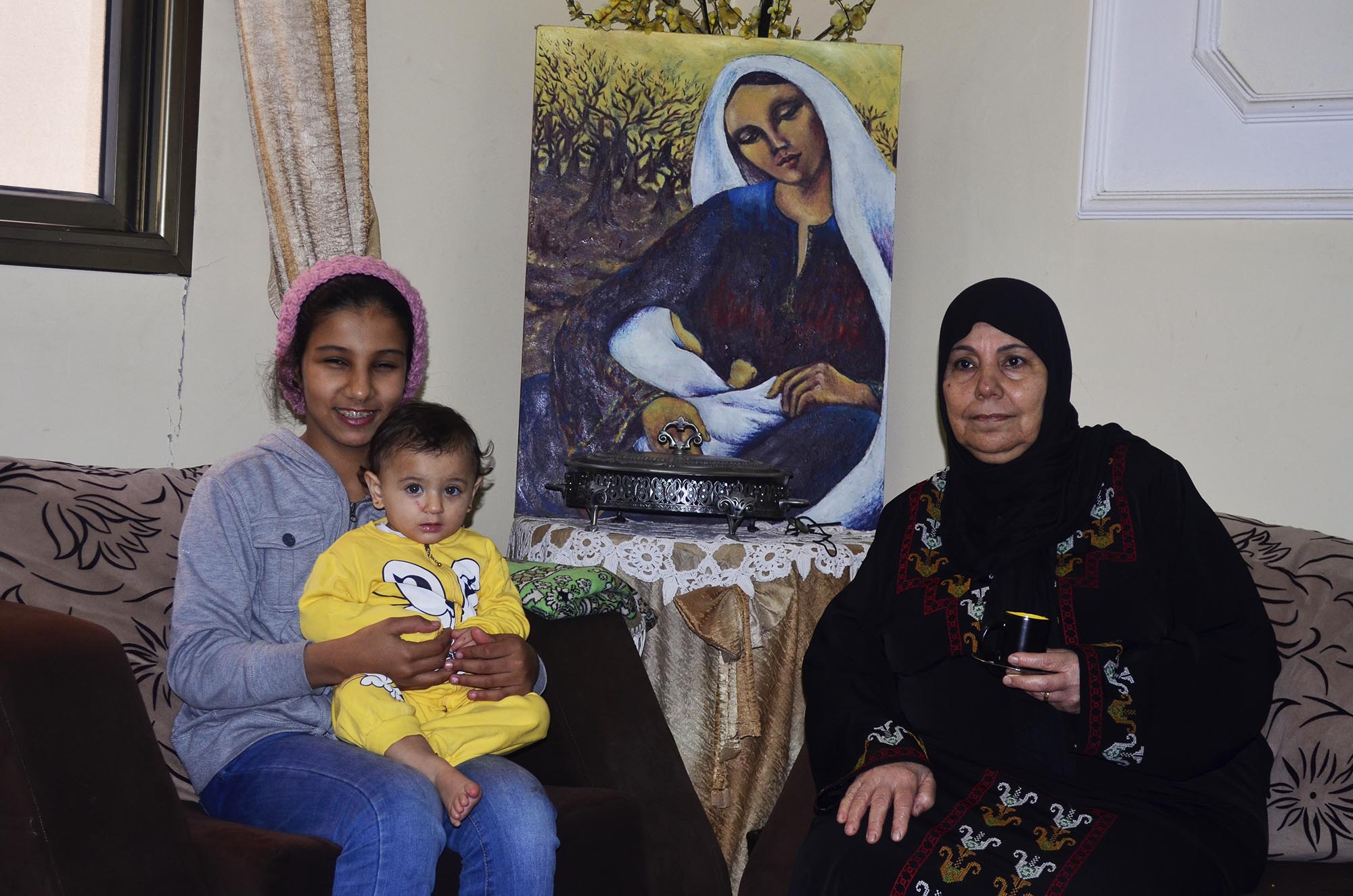

Through its partnership with IRUSA, Anera has directly reached 45,000 Palestinians in Gaza with sanitation facilities, as well as 200,000 indirect beneficiaries. The project includes 150 health awareness sessions and the distribution of 5,000 hygiene kits and educational brochures.

